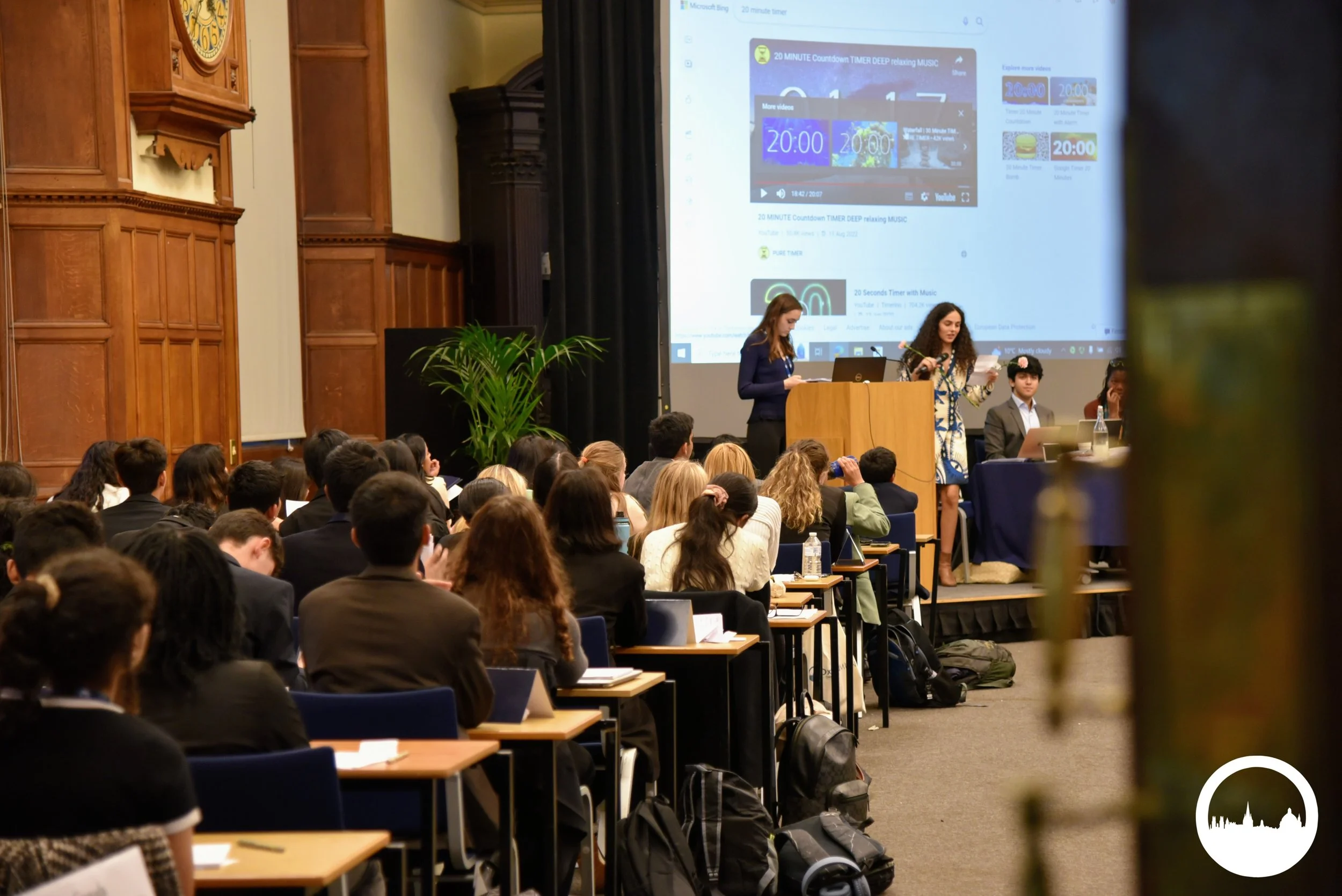Preparing for an MUN Conference
David Li, Undersecretary General for Content
Now that the introduction is out of the way, how should you prepare for an MUN conference?
A few months before the conference, which will be happening in November this year, you will have to sign up for the conference. At this point, you will either pick, or be assigned, the committee that you will debate in, as well as the country that you will represent. When you pick the committee, you should look for a topic that interests you. If you are very interested in economic development, maybe consider UNDP or ECOFIN. If you are a big fan of healthcare, consider WHO. When you pick a country, consider how much you are willing to speak. If you are very eager to speak and debate, you should pick an important country. This can either be a large country, one that has something to say about everything, the US, China, etc., or this can be a relevant country. A country who is currently suffering from the problem that you are trying to resolve, a country very close to a geopolitical tension, or otherwise a country that has a lot to say about the specific topic being debated.
After you have received your committee and country allocation, it’s time to start researching. There will be what is called a ‘background guide,’ which is a document provided for all delegates, that does some of the general research for you. The background guide will be released a bit prior to the conference, and it will cover the basic historical context of the problem that you will have to debate, as well as some other background information. You can always rely on the backgrounder to develop a basic understanding of the topic before you do detailed research. But most of the time, the background guide is not enough. Specifically, while the background guide provides you with a background of the problem, it’s likely that the background guide won’t tell you what your country has done regarding this problem in the past, and what your country’s attitudes are towards the problem.
This is where your own research comes in. After reading the background guide, delegates should spend at least five hours researching their country’s position on the topic, what their country’s fears and wants are relevant to the topic, and what actions their countries had taken in the past regarding the topic. So if the debate is about virus prevention, consider researching your country’s reaction to COVID 19, the SARS outbreak, and the country’s current policies towards pandemics, as well as what the country might hope to achieve.
Keep in mind, in committee sessions, you ALWAYS have to speak from the perspective of the country that you are representing, and advocate for their interests, even if they conflict with your own beliefs. If you are representing North Korea, you must not advocate for transparency and third party election agencies, because in real life North Korea would never advocated for these things. If you are China or Russia, you must not be dragged along by the US, because in real life, China or Russia would not blindly follow the US. Your research should tell you how your country behaves in real life, and you will have to carry through representing this attitude for the entire conference.
A few weeks before the conference, you will have to gather all the research that you have done, and compile it into a position paper. The position paper should be a single page document briefly outlining the following topics: the topic that is being discussed, simplified and rephrased according to how your country views it (all references to ‘your country’ are short for ‘the country that you will be representing,’ not the country that you as an individual come from). Then, you will have to discuss the past actions that your country has taken regarding the problem. What laws your country has legislated, what international treaties your country has signed, and so on. Finally, you will have to briefly summarize your country’s position on the problem, and the solution that you will go in to the conference hoping to implement. This proposed solution is in no way binding. It is simply the starting point of your debate. While you might not want to take a 180 degree turn and argue for the exact opposite thing in the actual debate, minor, or even major changes in attitude are fully acceptable, and you will not be held to the solution that you have proposed in your position paper at all.
The point of the position paper is simply a way to check that all delegates have done the research necessary, and to force the delegates to consider what position their country is at the beginning of the conference. The length of the position paper may vary, but generally it is around one page, with a second page for citations. Sometimes there will be an award for the best position paper written, but even if there is no award, position papers are usually mandatory if you want to be considered for any award at all, and as you will have to do research and collect your thoughts anyways, there really is no reason to not put your full effort into the position paper.
All of the above information is assuming that your committee only has one topic. However, sometimes your committee might have more than one topic. For example, if you are doing World Health Organization, you might see two topics: ‘Preparing for Global Pandemics’ and ‘Setting Personal Protection Equipment Standards.’ If you see two topics, don’t worry, just do what you have to do for one topic, except do it for both. Read the backgrounder for both topics (they’re usually in the same document), research your country’s actions and topics for both topics, and prepare to debate either of the topics. Usually you will have to write a two page position paper in this case, one page on each topic. If you get two topics, sometimes you will debate both topics, other times you will only have time to debate one of the two topics, depending on how the debate goes. So it’s worth considering, if you could only debate one topic, which of the two you would want to debate.
Of course, if you only get one topic to prepare for, you don’t have to worry about any of this.
Apart from the backgrounder, you might receive a few other documents, but don’t worry if you don’t get them either. There might be a Rules of Procedure handbook, which simply outlines what the debate will look like. You will also receive a document called a delegate handbook. You might receive it online before the conference, or you might receive an actual paper handbook at the beginning of the conference. This handbook includes basic logistical information, like where each committee will be debating, where the opening and closing ceremonies will be, the schedule for the conference, and maybe some recommended restaurants around the city, possibly along with vouchers. Don’t worry if you don’t get a handbook or if you lose it, all this information can be found online as well.
After you have completed the position paper, read all the documents, and done all of your research, it’s finally time for the conference! Model UN conferences have a strict dress code, all delegates have to show up in Western business formal attires. Print out your position paper if you want to reference it. Print out the background guide or the rules of procedure document if you want to reference it. Or, show up empty handed if you remember everything, and be ready to debate!

